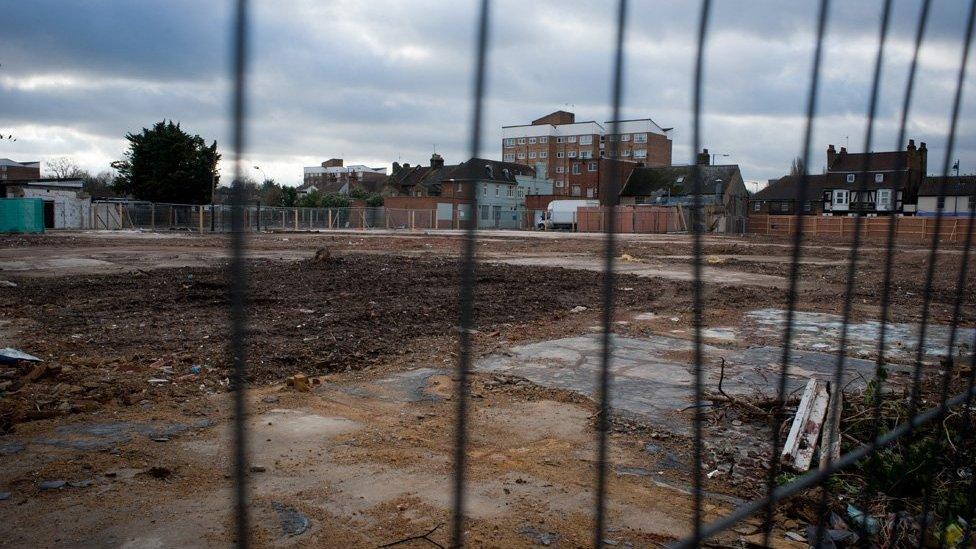Tesco: Houses are more lucrative than shops
- Published
- comments
Alan Stewart: "It's about getting the best of what we've got"
This morning's announcement that Tesco is selling 14 former supermarket sites to a property developer is significant for two reasons.
First, it shows that building houses is more profitable than building shops - at least in some parts of the UK.
And second, that controversial supermarket "land banking" (buying up swathes of land for potential retail development) has largely run its course.
It is likely that other supermarkets will follow suit, releasing land for housing and smaller retail developments.
Which could be good news for a government keen to see lots more houses built.
I asked Alan Stewart, Tesco's chief financial officer, how many houses could be built.
"It certainly will be thousands, I think it will depend on council by council, site by site exactly what the development turns out to be," he said.
Sympathetic
Sources close to the business tell me that as many as 10,000 homes could be built on the sites Tesco has just sold, from Bath to London and the south-east of England.
"These sites were all bought because we intended to put a store [in] and then develop residential around them," Mr Stewart told the BBC.
"We wanted to ensure that we would work with the communities and the council in order to develop and build housing and the other projects as quickly as possible and in a way that is sympathetic to the community."
The 14 sites sold are just a small part of the 49 projects Tesco announced earlier in the year it was abandoning.
The others remain largely unsold and derelict, leading to criticisms from local MPs such as Pat McFadden, MP for Wolverhampton South East, who said the local community felt let down.

I asked Mr Stewart if he had sympathy with the critics.
"Of course, and I think it's in these sort of sites and these communities [that] it's very difficult.
"These were difficult decisions we made [to abandon the developments].
"They weren't made without a lot of contemplation, a lot of thought and we'll do everything we can to try to get the developments that were expected in these areas, developed as quickly as possible.
As quickly as possible, yes, but Mr Stewart knows that selling lucrative sites in the south-east of England is somewhat easier than more marginal sites across the north of England, for example.
As yet, there is still no timeline for selling the rest of the sites, which for the moment will remain padlocked and unused.